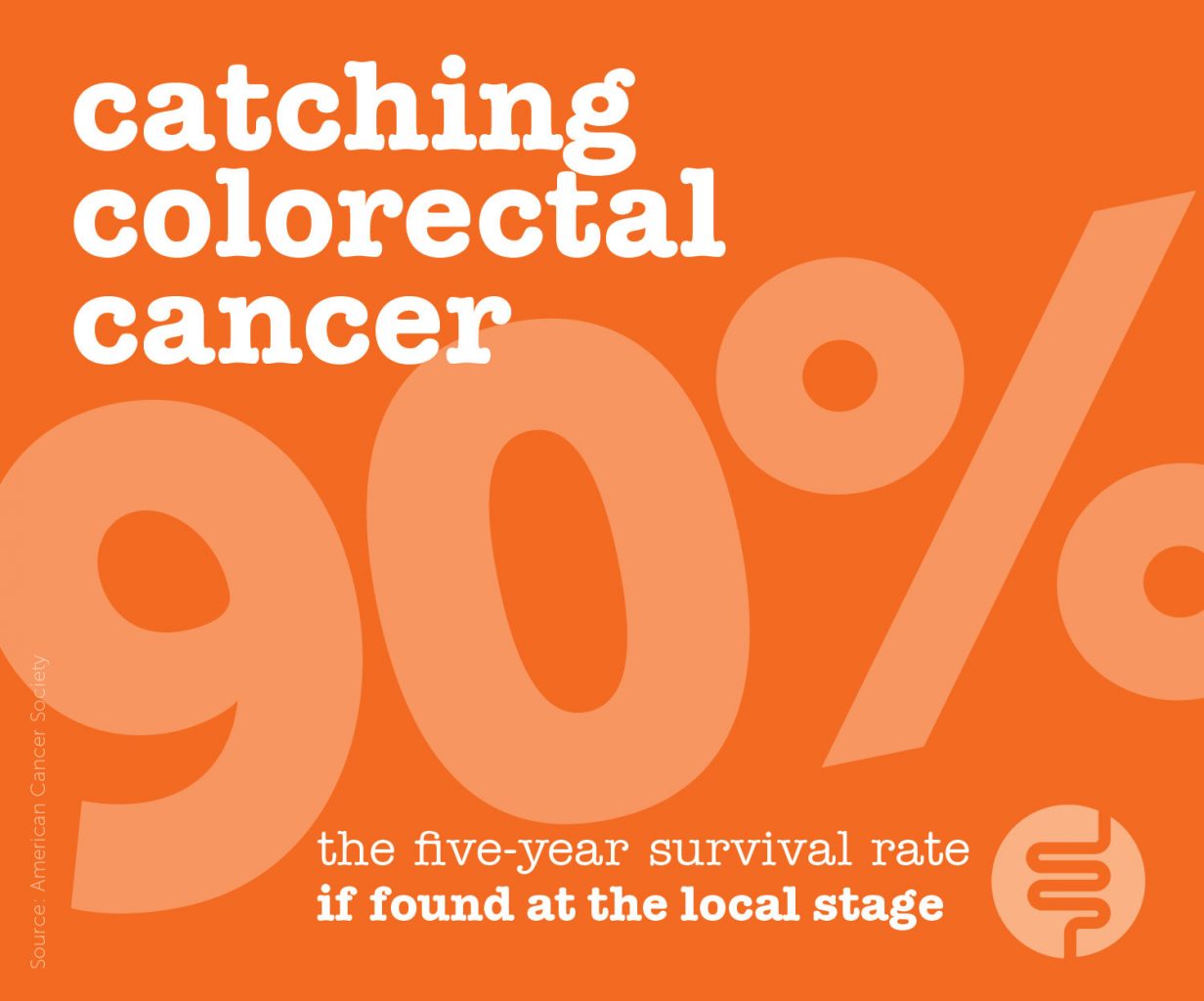
Early discovery can have a significant impact on a patient’s survival.
The good news: If colorectal (colon) cancer is found in the “local” stage, the chance of a five-year survival is 90 percent. The bad news: According to the American Cancer Society, only 40 percent of cases are diagnosed at an early stage, partly due to low screening rates.
What does “local stage” mean? The stages of colon cancer are as follows:
- Polyp: Most colorectal cancers develop from these noncancerous growths.
- In situ: Cancer has formed, but is not yet growing inside the colon or rectum walls.
- Local: Cancer is now growing in the colon or rectum walls; nearby tissue is not affected.
- Regional: Growth beyond the colon or rectum walls and into other tissue or lymph nodes.
- Distant: Cancer has spread to other parts of the body, such as liver or lungs.
The American Cancer Society recommends that people at average risk of colorectal cancer start regular screening at age 45.
Signs and symptoms of colon cancer are broken down into two categories: local and systemic.
Signs of colon cancer include the following:
Local colorectal cancer symptoms
Local symptoms are those that have a direct effect on the colon or rectum.
- Changes in your bowel habits
- Constipation
- Diarrhea
- Alternating diarrhea and constipation
- Rectal bleeding or blood in your stool
- Abdominal bloating, cramps or discomfort
- A feeling that your bowel doesn’t empty completely
- Stools that are thinner than normal
Systemic colorectal cancer symptoms
Systemic colorectal cancer symptoms are those that affect your entire body.
- Unexplained weight loss
- Unexplained loss of appetite
- Nausea or vomiting
- Anemia
- Jaundice
- Weakness or fatigue
As with most conditions, preventive tips include:
- Eating a healthy diet, with more vegetables, fruits and whole grains. Learn more about how to eat your daily value of vitamins and minerals!
- Avoid obesity and weight gain. Having problems sticking to your fitness goal? We have tips to help keep you on track.
- Avoid tobacco and excess alcohol. Need help getting over those cigarette cravings? Here’s what you should know.

Don’t Delay
Some things in life can be put off. A cancer screening shouldn’t be one of them. Cancer checks save lives.
